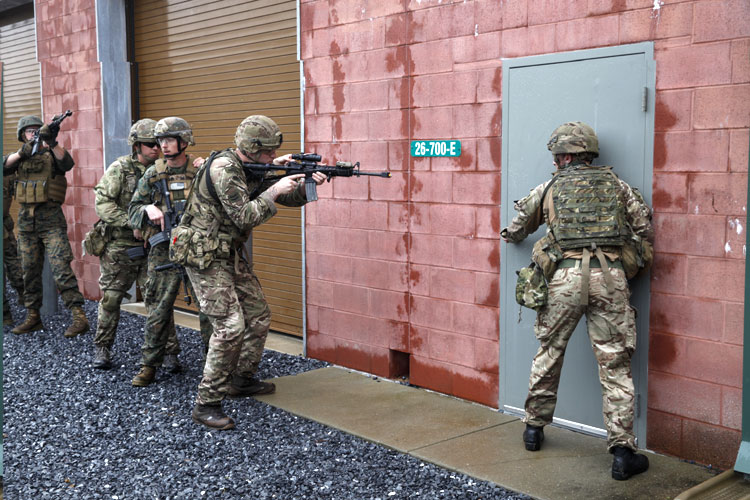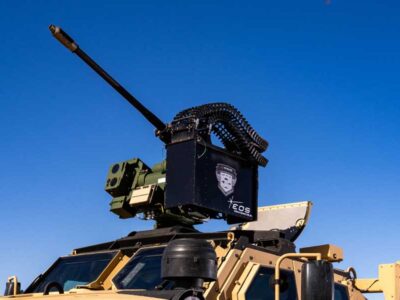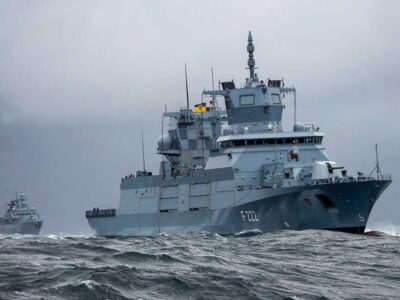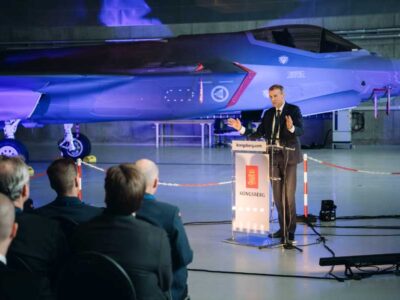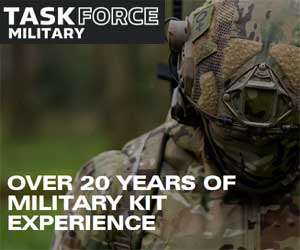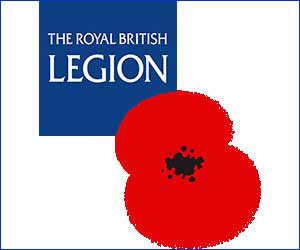US Marines with 6th Engineer Support Battalion, 4th Marine Logistics Group, are partnering with the engineers of 131 Commando Squadron, British Army, to participate in Exercise RED DAGGER at Fort Indiantown Gap (FTIG), Pennsylvania, writes MFR Sgt Melanie A. Wolf.
The [US] Reserve Marines supporting this fifth iteration of training are based out of five locations: Portland, Oregon, Battle Creek, Michigan, Peoria, Illinois, Folsom, Pennsylvania, and Millington, Tennessee.
“Every year we alternate where the integrated training between the Marines and commandos will take place,” said Maj. Timothy B. McGovney, company commander of Exercise RED DAGGER, 6th ESB. “This year happens to be at Fort Indiantown Gap.”
Fort Indiantown Gap is an ideal training environment as it provides the Marines and British Commandos a perfect area to enhance their skills. “We are really looking forward to making the most out of the facilities the Marines have here in the United States and particularly the built up urban environment on Fort Indiantown Gap,” said 2nd Lt. David A. Grant, support troop commander, 131 Commando Squadron Royal Engineers. “It is quite rare compared to what we have in the UK.”

A joint formation of US Marines and British Commando combat engineers patrols a village at the MOUT structureat Fort Indiantown Gap during Exercise RED DAGGER [USMC: Sgt. Melanie Wolf]
The first half of the two week exercise will consist of a series of ranges and tactical instruction. “We will be teaching rifle marksmanship with the M16s, M4s, and M9s,” said McGovney. “Tables five and six, which are short range engagements, will be conducted both during the day and then again at night with the night operations and night vision goggles.”
While integrating the Marines and British Commandos into four platoons, they will give all junior ranking officers a chance to be involved and lead the platoons. “Two of the platoon commanders are Marine Lieutenants,” said McGovney. “The other two platoons will have British Commando equivalents as their platoon commanders.”

US Marines and and British Commandos working as a squad practice clearing a building on a bilateral training exercise in Pennsylvania [USMC: Sgt. Melanie Wolf]
Half of the training that will be conducted will give the engineers and metal workers a chance to do something within the realm of their occupational speciality. “The second half of this exercise is the engineering projects, where we will be putting up vertical siding construction pieces and installing new flooring in an old World War II barracks,” said McGovney. “We also have plans for our heavy equipment operators to dig trenches at a local range, in order to practice survivability positions within a tactical environment.

A British Army lance corporal provides security with his fire team of US Marines at the Fort Indiantown Gap MOUT facility [USMC: Sgt. Melanie Wolf]
With a hopeful outcome for this exercise and future iterations, the Marines with 6th ESB hit the ground running and kick off the integrated training with the British Commandos. “These are our allies across the Atlantic and we want to be able to go into theatre with them and be able to operate, whether adjacently, joint, or bilaterally,” said McGovney. It’s important to continue this integrated training in order to shoot, move, and communicate together. Both nations have different capabilities and equipment that we can bring to the table to accomplish the same mission.”
Source: US Marine Forces Reserve
Footnote: 131 Commando Squadron Royal Engineers is a British Army Reserve unit.


